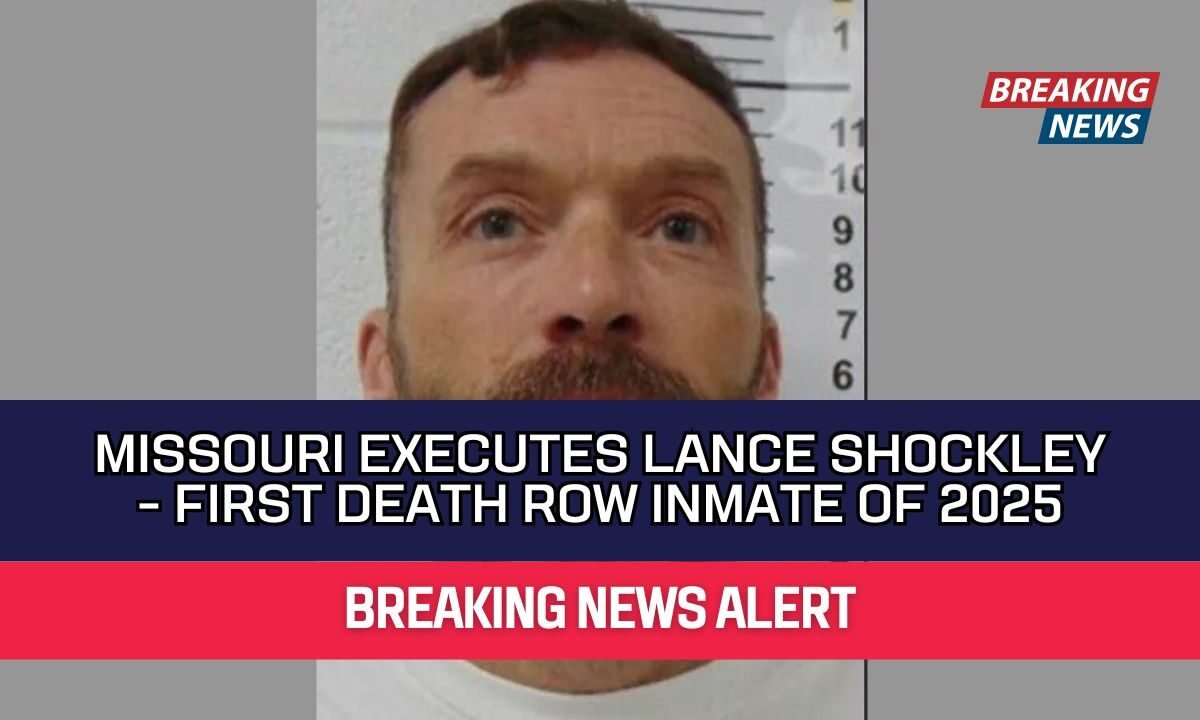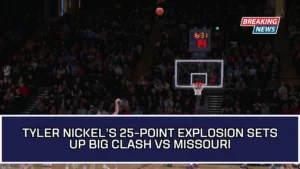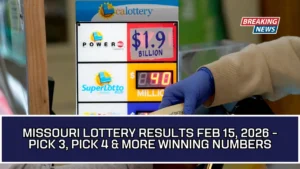Missouri carried out its first execution of 2025 on Tuesday, putting Lance Shockley to death for the 2005 murder of Missouri State Highway Patrol Sergeant Carl Dewayne Graham Jr. Shockley, 48, was executed by lethal injection at the Eastern Reception, Diagnostic and Correctional Center in Bonne Terre, Missouri.
He was pronounced dead at 6:13 p.m. Central Standard Time.
Shockley was convicted of killing Sgt. Graham on March 20, 2005. At the time, Graham was investigating Shockley for manslaughter in connection with a fatal car crash in November 2004.
Shockley had been driving under the influence when the truck he was in crashed, killing his sister-in-law’s fiancé, Jeffrey Bayless. Prosecutors said Shockley killed Graham to prevent further investigation into the crash.
The Crime and Conviction
Shockley always maintained his innocence. In his final statement before execution, he said:
“So also you have sorrow now, but I will see you again, and your hearts will rejoice, and no one will take your joy from you.”
His last visits were with his two daughters and a friend, ending at 11:06 a.m. Shockley’s last meal included peanut butter, three packs of oatmeal, water, and two sports drinks.
Missouri Governor Mike Kehoe denied Shockley’s request for clemency the day before the execution. He said Shockley had received all legal protections under the Missouri and United States Constitutions, and that his conviction and death sentence would remain.
The governor emphasized that Missouri would continue to pursue justice for the murder of a law enforcement officer.
Public Reaction and Debate
The execution sparked debates about the death penalty. Supporters argued it was fair punishment for killing a police officer.
Opponents, including human rights organizations, criticized the execution, saying the trial had serious flaws and relied mostly on circumstantial evidence. Amnesty International USA condemned the execution, highlighting concerns over the case’s fairness.
Shockley’s attorneys requested additional time to test DNA evidence and asked that his two daughters, both ministers, serve as spiritual advisors during the execution. Both requests were denied by the courts.
Court Decisions and Final Appeal
Shockley’s execution followed the U.S. Supreme Court’s denial of his final appeal. Courts confirmed that while the evidence was circumstantial, it was strong and the death sentence was proportionate to the crime.
On the same day, Florida executed Samuel Smithers, 72, for killing two women in 1996. Shockley became Missouri’s first execution of 2025, while Smithers was Florida’s 14th execution this year—a record high since executions resumed in 1976.
Missouri Death Row Statistics
Missouri currently has seven men on death row, five of whom are eligible for execution. Since 1976, when executions resumed in Missouri, over 100 people have been executed, including four in 2024. Across the United States, 37 executions have occurred so far in 2025.
Timeline and Key Facts
| Event | Date/Time | Details |
|---|---|---|
| Crime | March 20, 2005 | Sgt. Carl Graham Jr. killed outside his home |
| Fatal Car Accident | Nov 26, 2004 | Shockley involved in a crash killing Jeffrey Bayless |
| Arrest | March 23, 2005 | Shockley arrested for murder and armed criminal action |
| Conviction | 2009 | Convicted and sentenced to death |
| Clemency Denied | Oct 13, 2025 | Governor Mike Kehoe denies clemency request |
| Execution | Oct 14, 2025, 6:00–6:13 p.m. CST | Executed by lethal injection at Bonne Terre |
| Last Meal | Oct 14, 2025 | Peanut butter, oatmeal, water, and sports drinks |
| Final Statement | Oct 14, 2025 | “So also you have sorrow now…” |
The execution of Lance Shockley highlights the ongoing debates over the death penalty in Missouri and the United States. While some view it as justice for the murder of a police officer, others question the fairness of relying heavily on circumstantial evidence.
Shockley’s case illustrates the challenges, moral questions, and complexities involved in capital punishment.




